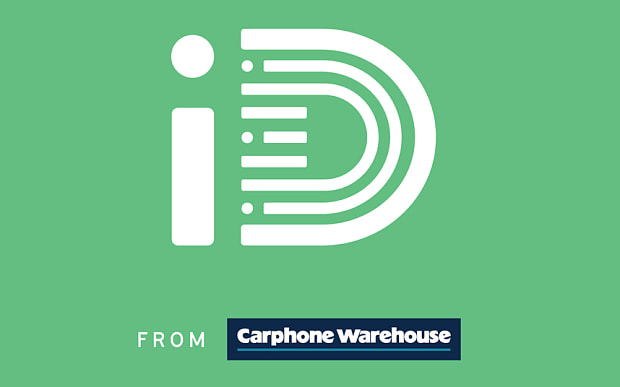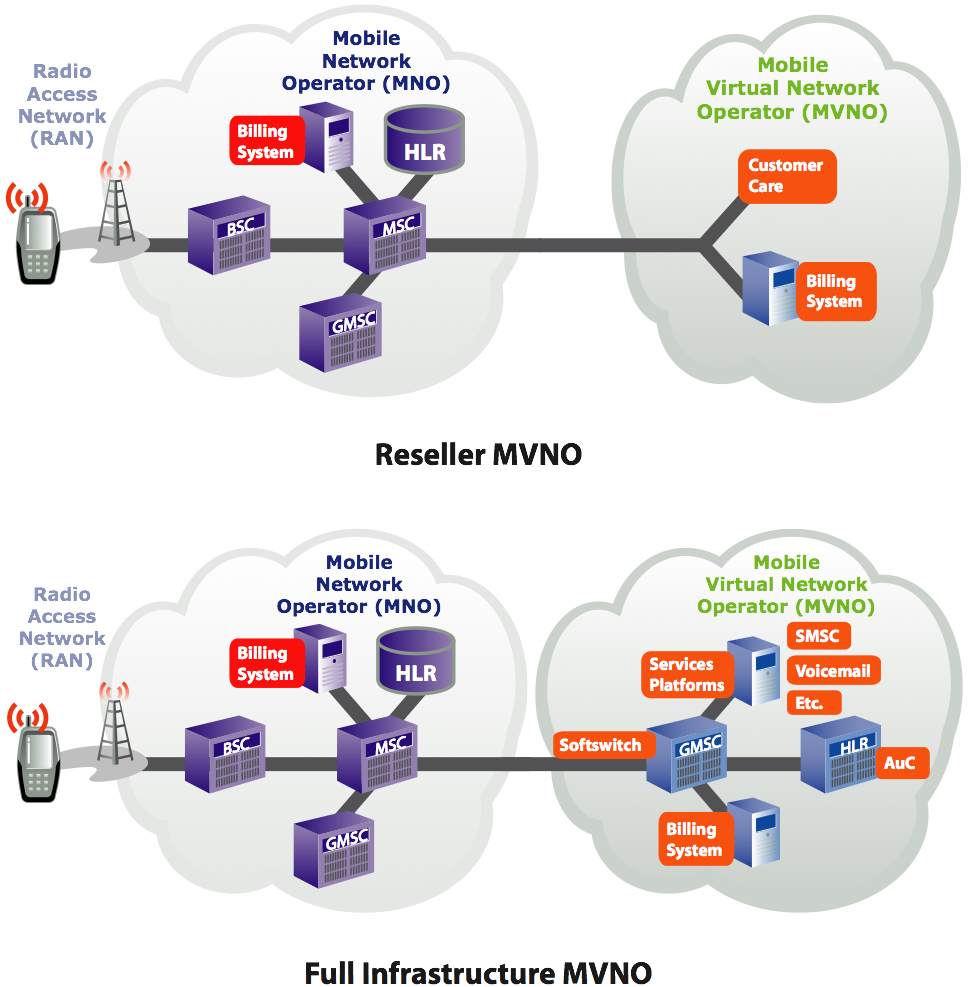Published 21/07/2017
iD Mobile's Demise is hardly a surprise:
The MVNO Flop
Launched just two years ago next month, Dixon Carphone's iD Mobile is up for sale due to market struggles. The Irish MVNO (mobile virtual network operator) will likely be shut down if the network isn't snapped up by a buyer. This would leave Irish mobile customers with one less network to choose from. iD Mobile, who piggybacks on Three's 2G, 3G and 4G network, has managed to obtain a meager 30,000 customers since its inception. While it is unlikely the network will cease its operation in Ireland, it does highlight the competitiveness in the Irish mobile market.
iD Mobile's stores are currently integrated within Carphone Warehouse stores throughout Ireland raising the question of what would happen to these stores if the network is bought out. Another factor to consider is iD's capacity agreement with Three which was a compulsory factor in the O2 merger to placate networks such as Vodafone and Meteor who saw the merger as unfair in terms of capacity and spectrum. This agreement between Three and iD Mobile means that iD has to pay a fixed price for its capacity even if little to none of the capacity is being used, making it a risky investment. The EU competition regulator ensured Three provided guaranteed capacity for two new MVNO's in Ireland. Those two MVNO's - iD Mobile and Virgin Mobile - have struggled to make a dent on the Irish mobile market. The annual losses at iD Mobile are almost twice its revenues.
iD Mobile's stores are currently integrated within Carphone Warehouse stores throughout Ireland raising the question of what would happen to these stores if the network is bought out. Another factor to consider is iD's capacity agreement with Three which was a compulsory factor in the O2 merger to placate networks such as Vodafone and Meteor who saw the merger as unfair in terms of capacity and spectrum. This agreement between Three and iD Mobile means that iD has to pay a fixed price for its capacity even if little to none of the capacity is being used, making it a risky investment. The EU competition regulator ensured Three provided guaranteed capacity for two new MVNO's in Ireland. Those two MVNO's - iD Mobile and Virgin Mobile - have struggled to make a dent on the Irish mobile market. The annual losses at iD Mobile are almost twice its revenues.
The MVNO Flop
With seven mobile virtual network operators in Ireland holding a combined market share of just 6%, one has to wonder what went wrong. There are a number of factors that have stifled the growth of MVNO's in Ireland. For one, MVNO's have significantly less money to spend on a marketing campaign so while you'll see Vodafone ads plastered everywhere from television, billboards and social media you won't see too many Post Mobile or iD Mobile ads. And thats a huge problem because almost everyone I've asked has never heard of iD Mobile or 48 Months. If a person has never heard of a product or service how the heck do you expect them to become a paying customer.
Another issue is the timing of which the MVNO's entered the Irish market. Vodafone, Meteor and Three had already attracted millions of customers by the time Virgin Mobile and iD Mobile entered the market. With a saturated and competitive market it was ludicrous for MVNO's to think they could attract customers from the bigger players. Vodafone and Three already had their customers locked into contracts and paying a pretty penny for their service. Those customers would have formed a relationship with their network and perhaps become loyal to that network.
Perhaps the most obvious fault with the MVNO model is the one that benefits the customer most. Its no secret that Vodafone charges customers significantly more than any MVNO. And why do they charge more you may ask, because they can. Vodafone knows they can charge customers more than any other network because they know people will continue to pay for a quality service. This means Vodafone is the most profitable network in Ireland and more money can be invested in other areas such as network and customer support enhancements. This is also true for Meteor and Three, both of which are much more profitable than the MVNO's. Often times networks such as Virgin Mobile and iD Mobile offer killer deals with tones of calls, texts and data because they have to. If they charged the same as Vodafone, they wouldn't be in business. And with less money coming in from every customer there's less money to spend on improving the service.
Three is partly to blame for the MVNO's struggles. Its quite peculiar to see five out of the seven MVNO's piggybacking on the Three network. Piggybacking on the Three network isn't something to boast about considering it has the worst network in Ireland for coverage and quality. So customers can get data dirt cheap on the likes of iD Mobile but most likely will struggle to use it in a lot of places. The other two MVNO's who don't rely on the horrendous Three network - Post Mobile (Vodafone) and Eir (Meteor) - do provide their customers with a better service. Then there's the problem of MVNO's lacking support for 4G putting them years behind of the competition.
Things get even worse when you realise one of the seven MVNO's has two-thirds of that 6% market share, Tesco Mobile. There's a reason why Tesco Mobile has been more successful than the other MVNO's and its not because they offer better plans or a better service, because they definitely don't. No other MVNO has the same broad reach as Tesco Mobile does in Ireland thanks to Tesco Mobile's large retail presence within Tesco stores around Ireland. MVNO's such as 48 and Virgin Mobile have struggled to attract customers because they have no retail presence in Ireland, they rely solely on their online website to attract new customers. It's fair to say that the vast majority of people would prefer to buy a phone or change their plan in store rather than order one online.
Another issue is the timing of which the MVNO's entered the Irish market. Vodafone, Meteor and Three had already attracted millions of customers by the time Virgin Mobile and iD Mobile entered the market. With a saturated and competitive market it was ludicrous for MVNO's to think they could attract customers from the bigger players. Vodafone and Three already had their customers locked into contracts and paying a pretty penny for their service. Those customers would have formed a relationship with their network and perhaps become loyal to that network.
Perhaps the most obvious fault with the MVNO model is the one that benefits the customer most. Its no secret that Vodafone charges customers significantly more than any MVNO. And why do they charge more you may ask, because they can. Vodafone knows they can charge customers more than any other network because they know people will continue to pay for a quality service. This means Vodafone is the most profitable network in Ireland and more money can be invested in other areas such as network and customer support enhancements. This is also true for Meteor and Three, both of which are much more profitable than the MVNO's. Often times networks such as Virgin Mobile and iD Mobile offer killer deals with tones of calls, texts and data because they have to. If they charged the same as Vodafone, they wouldn't be in business. And with less money coming in from every customer there's less money to spend on improving the service.
Three is partly to blame for the MVNO's struggles. Its quite peculiar to see five out of the seven MVNO's piggybacking on the Three network. Piggybacking on the Three network isn't something to boast about considering it has the worst network in Ireland for coverage and quality. So customers can get data dirt cheap on the likes of iD Mobile but most likely will struggle to use it in a lot of places. The other two MVNO's who don't rely on the horrendous Three network - Post Mobile (Vodafone) and Eir (Meteor) - do provide their customers with a better service. Then there's the problem of MVNO's lacking support for 4G putting them years behind of the competition.
Things get even worse when you realise one of the seven MVNO's has two-thirds of that 6% market share, Tesco Mobile. There's a reason why Tesco Mobile has been more successful than the other MVNO's and its not because they offer better plans or a better service, because they definitely don't. No other MVNO has the same broad reach as Tesco Mobile does in Ireland thanks to Tesco Mobile's large retail presence within Tesco stores around Ireland. MVNO's such as 48 and Virgin Mobile have struggled to attract customers because they have no retail presence in Ireland, they rely solely on their online website to attract new customers. It's fair to say that the vast majority of people would prefer to buy a phone or change their plan in store rather than order one online.
Clever Vodafone, Clever Meteor
Contrary to Three's network, Vodafone and Meteor have decided to be less lenient towards the idea of MVNO's. I personally think that their decision is more favourable than the one taken by Three because it ensures there is sufficient capacity on the network to support a quality experience for all customers. Vodafone only supports one MVNO, Post Mobile, which is only permitted to use Vodafone's 3G network. This means no capacity is taken by any third party customers on Vodafone's 4G/4G+ and prevents fragmentation of the network. Meteor also supports only one MVNO, Eir. Meteor also happens to be a subsidiary of Eir so they have full control over the development of their network, similar Vodafone.
It's no coincidence that the two networks supporting only one MVNO, Meteor and Vodafone constantly provide customers with a far better data experience than customers on Three experience. This is because mobile spectrum is a limited resource that must be allocated carefully to ensure the best experience for the end user, and when there is insufficient allocated spectrum, customers suffer as a result of congestion. It really does make you wonder are MVNO's really bringing increased competition to the market or are they resulting in a worser mobile experience for everyone.
It's no coincidence that the two networks supporting only one MVNO, Meteor and Vodafone constantly provide customers with a far better data experience than customers on Three experience. This is because mobile spectrum is a limited resource that must be allocated carefully to ensure the best experience for the end user, and when there is insufficient allocated spectrum, customers suffer as a result of congestion. It really does make you wonder are MVNO's really bringing increased competition to the market or are they resulting in a worser mobile experience for everyone.









